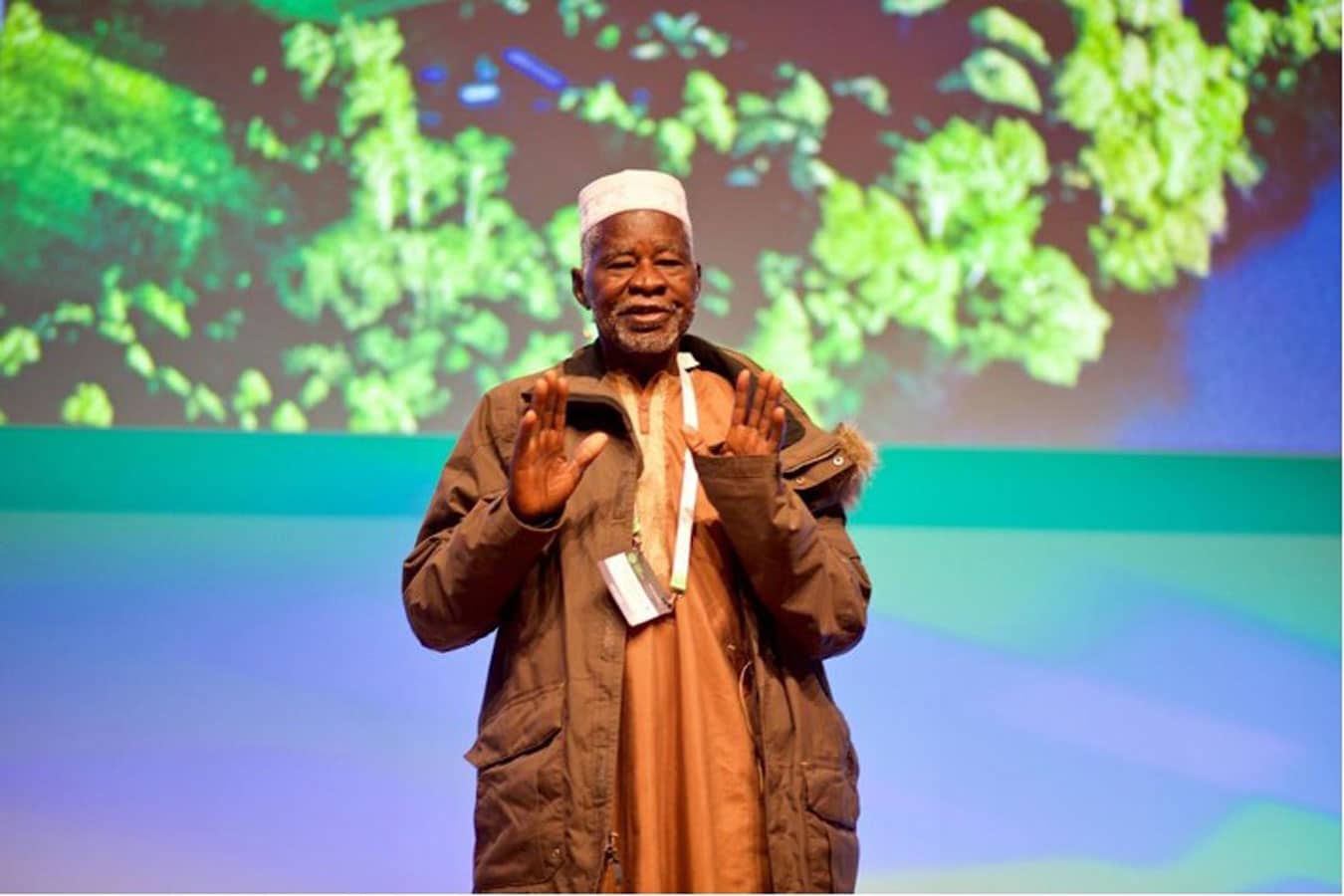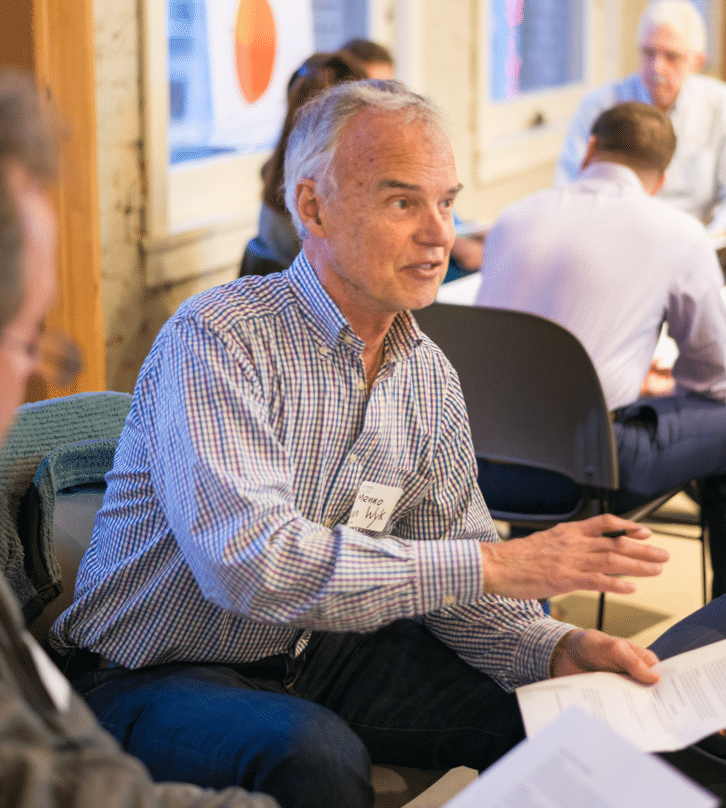Many of this newsletter’s readers have likely never heard of Yacouba Sawadogo. His name is perhaps not as famous as his greatest fans might prefer, but he is well-known in the food security community, and his legacy is poised to reverberate long after his recent passing. His is the type of bottom-up innovation that inspires us at Grow Further.
Sawadogo was born and raised in Burkina Faso, a West African nation straddling arid tropics and the Sahel, not far from the Bambara groundnut research we’re supporting in northern Ghana. He drew the attention of regional agricultural authorities and later international development experts for “revolutionizing agricultural methods and creating a 75-acre forest on barren land” as the New York Times explained in an obituary.
Sawadogo died on December 3, 2023, at the age of 77 in Ouahigouya, Burkina Faso, a northern city close to the border with Mali.
Sawadogo, a quiet and unassuming smallholder farmer, rose to prominence in the fight against desertification, which refers to the tendency for degraded agricultural lands to become consumed by neighboring arid regions and deserts over time. Though climate change remains the greatest long-term threat to dryland agriculture, much of the damage done to these sensitive lands is inflicted directly by people through overgrazing, overcultivation, and especially deforestation. In the Sahel, humans often inadvertently dry out much of their arable land long before climate-induced droughts have a chance to.
“There is no sickness that cannot be treated by a tree.”
Sawadogo was called “the man who stopped the desert” after a 2010 documentary film of that title that chronicled his life. He “stopped the desert” by getting trees to grow where they once could not through his experiments with an agricultural practice known locally as “zai”. Farmers in the region who emulate his example have found that they can grow far more food than initially thought possible through simple measures aimed at retaining rainwater and encouraging strands of forest to grow, strands of trees and bushes that can protect croplands from hot, sandy winds while encouraging moisture retention in neighboring soils, benefiting farms and forests alike.
Farmers in Burkina Faso’s drier regions have long practiced zai in their fields to some extent. The word refers to the practice of digging small pits during rainy periods to hold the rainwater for longer. Sawadogo fundamentally changed this traditional practice by digging these pits when the ground was still bone dry, well ahead of the rainy season. He also widened his zai pits and lined them with rocks and manure. The rock-lined dry ground helped retain the rainwater longer, and the manure added precious nutrients to the water and surrounding soils. Having added these improved zai to the dry, parched ground, Sawadogo next planted trees.
He didn’t find success immediately, but after some trial and error, Sawadogo’s methods produced dramatic results. As the story goes, Sawadogo managed to triple his crop yields, feeding his family for years while producing enough surplus food to sell in local markets.
“The results were striking,” according to an account by the United Nations Environment Program. “The soil improved along with his crop yield. He was also able to grow trees in the arid ground.” UNEP says Sawadogo’s improved yet remarkably simple zai methodology created a variable forest on just 40 hectares of land in the middle of a desert, fostering “more than 60 species of bushes and trees” adjacent to farmland. The trees created windbreaks and encouraged moisture to linger for longer near the surrounding farms, boosting crop growth and yields. UNEP awarded Sawadogo its Champions of the Earth prize in 2020.
Sawadogo insisted that forests and farms can coexist and that healthy croplands go hand-in-hand with nearby healthy forests. “Trees can help the whole world,” he told UNEP in a video the agency produced. “There is no sickness that cannot be treated by a tree.” Sawadogo is survived by three wives and 27 children, according to the New York Times.
— Grow Further
Photo credit: Yacouba Sawadogo speaking at the 2018 Global Landscapes Forum in Bonn, Germany. Pillar Valbuena, GLF (CC BY-NC-SA 2.0 DEED).




